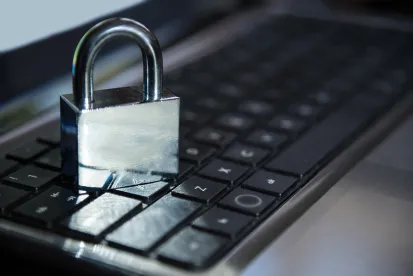On July 20, the US Court of Appeals for the Second Circuit affirmed the dismissal of a putative class action alleging that certain market participants engaged in spoofing in violation of the Commodity Exchange Act, 7 U.S.C. § 1 et seq. (CEA). Gamma Traders – I LLC v. Merrill Lynch Commodities, Inc., No. 21-853, 2022 WL 2821504, at *3 (2d Cir. July 20, 2022) (Op.). Significantly, the court reinforced the CEA’s pleading standard in ruling that Plaintiffs failed adequately to allege that they were "actual[ly] damage[d]" by Defendants' alleged spoofing activity. Id. at *1 (alteration in original).
The Second Circuit affirmed the district court's holding that Plaintiffs failed to allege exactly how they were damaged by Defendants' spoofing in the futures and options markets for precious metals. Instead of pointing to a specific trade affected by Defendants' alleged conduct, Plaintiffs argued that Defendants' damaged them because (a) Defendants spoofed thousands of times and Plaintiffs made thousands of trades; and (b) Plaintiffs traded on nine days in which Defendants allegedly engaged in spoofing activity. The Court rejected both arguments.
First, the court noted that the "type of pleading based on rote probabilities" that Plaintiffs advanced is "generally disfavored," id. at *4, and that if such allegations were sufficient to state a claim, "any person who traded with even modest frequency could state a CEA claim against a market-manipulating defendant, without ever plausibly alleging that she suffered a loss as a result of the defendant's conduct." Id. Rather, under the CEA, plaintiffs must allege facts plausibly suggesting that their trades were actually damaged by defendants' spoofing.
Second, the court found Plaintiffs' allegation that on nine occasions they traded on the same day and in the opposite direction of Defendants' spoofing insufficient to allege actual damage. As an initial matter, the court noted that Plaintiffs had not actually alleged in each of the nine occasions that they had traded after Defendants' spoofing (rather than before — in which case, the court noted, there could be no plausible claim of injury). Moreover, even if Plaintiffs had alleged that they traded after Defendants' alleged spoofing, they did not allege that they traded in close proximity to the spoofing. Instead, Plaintiffs argued that spoofing can have "linger[ing]" effects that should excuse the need to allege close proximity between Defendants' spoofing and Plaintiffs' subsequent trading. Id. at *5. The court found these allegations conclusory and unavailing. Id. Accordingly, the court declined to "infer[] that the market price was still artificial by the time [Plaintiffs] traded." Id.
In sum, the Second Circuit held that mere participation in the relevant market cannot support an inference of actual damage under the CEA. Id. at *7. Citing its prior decision in Harry v. Total Gas & Power North America, Inc., 889 F.3d 104 (2d Cir. 2018), the court observed that Plaintiffs' theory "would permit any regular market participant to proceed to discovery any time a significant market player has repeatedly committed fraud – contravening both the statute . . . and our caselaw." Op. at *7.
What this means for you
The Court's decision is noteworthy for its rejection of probabilistic pleading in the context of alleged disruptive trading. Such pleading was insufficient even against the particular backdrop of the case, which included government investigations and criminal convictions. Equally notable is the Court's insistence that plaintiffs provide sufficient factual allegations regarding the timing of their trading relative to defendants' alleged spoofing, particularly since many participants in a market where spoofing occurs may be uninjured, or even benefited, by the spoofing depending on the timing and placement of their orders both to enter and exit positions. Without specific factual allegations explaining how a defendant's spoofing caused a particular plaintiff to lose money, courts are likely to dismiss spoofing claims as inadequately pled, regardless of whether they arise under the commodities or securities laws.
The Court's decision may also increase the likelihood that market participants will seek to use so-called "John Doe" suits to try to obtain trading data sufficiently detailed to survive a motion to dismiss. In a number of recent cases, traders have filed claims against "John Doe" defendants, making generalized allegations of spoofing or manipulation and immediately serving discovery requests on the relevant exchange to obtain the names of their otherwise anonymous trading counterparties and to identify who was responsible for which trades.1 These suits raise a host of procedural questions that have yet to be definitively resolved by the courts. These include, among other things, whether it is permissible for plaintiffs to file suit without any indication of whether one or many counterparties executed the trades that allegedly caused them harm, whether courts should require plaintiffs to survive a motion to dismiss or to compel arbitration before revealing the identities of the John Doe defendants, and whether the statute of limitations is satisfied by the filing of a John Doe complaint or instead requires naming a specific defendant.
The use of John Doe pleading in trade practice litigation poses the particular concern that counterparty identities that would otherwise be confidential could be revealed through discovery even if the activity described in the initial complaint is not obviously problematic. Market participants should be mindful of John Doe filings alleging spoofing or manipulation in the markets in which they are active, particularly since the initial steps in these cases may occur effectively ex parte (since by definition the plaintiff does not know whom to serve with process).
1 See, e.g., Pajoje Development, LLC v. John Doe(s), No. 20-cv-04948 (N.D. Ill.) (alleging spoofing in S&P 500 options); Kessev Tov, LLC v. John Doe(s), No. 20-cv-04947 (N.D. Ill.) (alleging spoofing in S&P 500 options); In re Chicago Board Options Exchange Volatility Index Manipulation Antitrust Litigation, No. 18-cv-04171 (N.D. Ill.) (multiple John Doe cases alleging manipulation of VIX futures and options); CP Stone Fort Holdings, LLC v. John Doe(s), No. 16-cv-4991 (N.D. Ill.) (alleging spoofing in the cash Treasuries markets); HTG Capital Partners, LLC v. Doe(s), No. 15-cv-02129 (N.D. Ill.) (alleging spoofing in the cash Treasuries markets).







 />i
/>i
